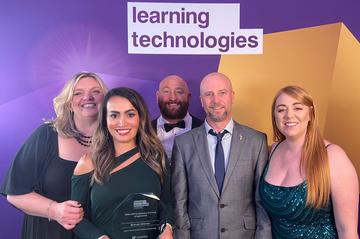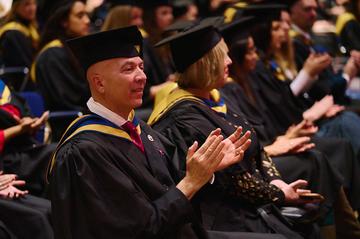All You Need to Know to Become a Licensed Conveyancer
Thu 13 Oct 2022

Michelle Timms
Product Manager / Property Law Tutor
What does a licensed conveyancer do?
A licensed conveyancer performs all the relevant legal and administrative roles involved in the buying and selling process, from taking a client's initial instruction to the exchange of contracts and completion of the transaction.
As a licensed conveyancer, you will be able to work anywhere dealing with the transfer of property titles – for example, law firms, housing associations, banks and airports. Licensed conveyancers are responsible for all documentation, contracts and finances associated with the sale or transfer of a property.
How much does a licensed conveyancer earn?
Salaries for licensed conveyancer's vary depending on the business, but they would typically range from around £20,000, for an entry level role, and over £50,000 for those with more experience. Management roles with a firm or partnership can often push salaries higher than this.
What qualifications are required to become a licensed conveyancer?
To become a licensed conveyancer, you will need to have met the registration requirements of the Council of Licensed Conveyancers. You do not need a prior qualification to work in this area, but to become a licensed conveyancer you will need to pass the Council for Licensed Conveyancers (CLC) qualifications:
- Level 4 Diploma in Conveyancing Law and Practice
- Level 6 Diploma in Conveyancing Law and Practice
As well as the qualifications, you would also need to evidence 1,200 hours of supervised practical experience to the CLC.
MOL Learn offer the qualification options with both Level 4 and Level 6 Diplomas in Conveyancing Law and Practice as well as an introductory course to allow you to gain an introduction to the conveyancing industry before you pursue the career qualifications further. The courses include free access to West Law, a leading global provider of legal, regulatory and business information and analytics. This extensive library of resources will help support you through your studies and in your day-to-day role in Conveyancing.
It can help to have some work experience in a related sector such as with an estate agent or within the property department of a law firm. Studying a relevant qualification like a bachelor’s degree in law can also be beneficial and may lead to some exemptions from parts of the course.
You can study a Council of Licensed Conveyancers qualification yourself or as part of an organisation’s training programme. However, it is important to note that many employers prefer to choose candidates who already have or are working towards their CLC qualification, over those who do not.
What skills are required to become a licensed conveyancer?
In order to become a licensed conveyancer, you will need to pass the CLC qualifications. Alongside this professional qualification, it can be useful to have the skills and qualities listed below.
- Thorough and detail oriented
- Excellent verbal and written communication skills
- Good legal knowledge including court procedures and government regulations
- An active listener
- Strong analytical and critical thinking skills
- Confidence in your maths ability
What are the career progression opportunities open to a licensed conveyancer?
As a CLC qualified licensed conveyancer, you can work anywhere that deals with the transfer of property titles. This includes law firms, housing associations, banks, airports and much more.
Licensed conveyancers have the ability to progress in their career by moving from private practice to in-house roles or vice-versa, taking on management responsibilities by supervising a team or becoming a partner in a conveyancing or law firm.
Call our Qualifications Advisors today on 03452 032 103 so we can help you decide which of our conveyancing qualifications is right for you.

Licensed Conveyancing
Qualifications
We’re proud to offer nationally recognised SQA qualifications in Licensed Conveyancing.




